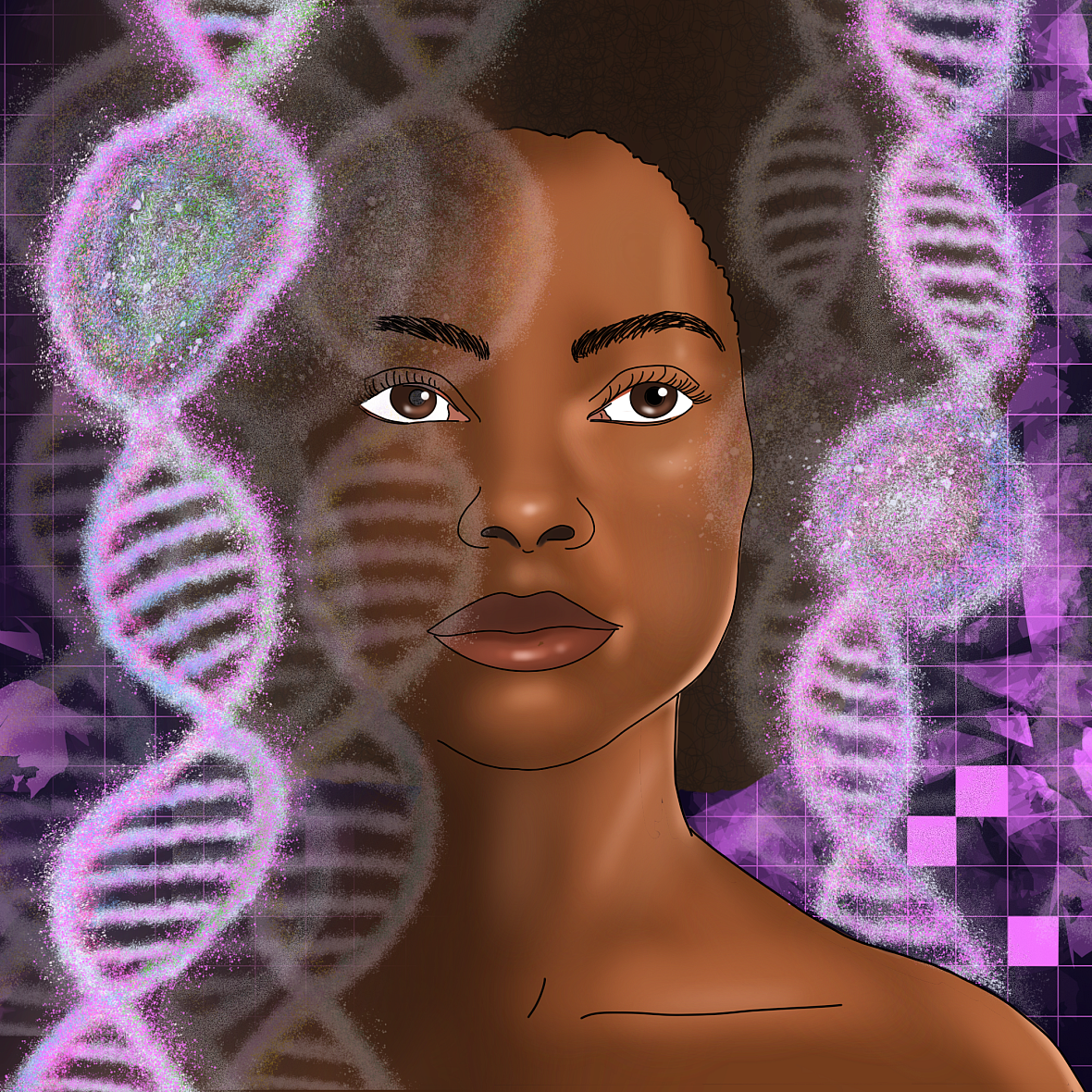I Got It From My Mama?
The story was co-published with the Stoop as part of the 2025 Ethnic Media Collaborative, Healing California.

The Stoop
A bullying and racist incident in high school deeply affected host Leila Day. And she questions how this one incident can "impact our psyche and the narratives we create about ourselves." She wonders if her behavior patterns of becoming quiet, withdrawn and shutting down in spaces, silencing her voice, in spaces where she felt alienated was a way of protecting herself or something much more deeper.
Hosts Leila Day and Hana Baba consider whether Epigenetics plays a role in moderating reactions to really high-stress situations. Epigenetics - the regulation of genes - explains why trauma may show up in the body long after an incident happens AND also explains how it is passed to future generations.
Dr. Stephen D. Kniffley Jr., a licensed clinical psychologist and the founder of Kniffley Racial Trauma Therapy delves deeper into the concepts of intergenerational trauma.
Leila: For African American ancestors who were trying to find a way to cope with the atrocities they experienced because of enslavement—
Kniffley: So they saw dehumanization, they saw families split apart, all that type of stuff. And as a part of that, they had to go like grapple and cope with all the things that they were experiencing ... and so what that meant then is that they took all that trauma that they were experiencing and they just tucked it into a box. And they said, I'm going to deal with that at a later time. What ended up happening for many of our folks is that they actually not, they didn't get around to dealing with those things. Instead, they passed down their trauma to the next generation of folks.
Hana: So a flood of cortisol gets released when the body thinks we need to escape danger or things are too risky.
Leila: But listen to this, when it comes to Black people.
Kniffley : we typically have higher rates of cortisol compared to the average population. there's been a bunch of research that specifically looked at the passing of high cortisol levels from mothers to their children, black mothers to their children. And what they found is that a mom who has experienced her own racism and discrimination has those higher rates of racial trauma and cortisol is more likely to have a baby who also has those higher rates of cortisol in their bodies too at birth.
Leila: Kniffley says these high levels of cortisol are because generation after generation of Black people have been on high alert. This is a concept called weathering, which is the idea that repeated exposure to negative and harmful things, racism, classism, marginalization, discrimination, these things can cause you to be physically unhealthy.

Returning to the high school incident, Leila recalls how all the belittling she experienced on the squad, the n words that slipped out of those white girls’ mouths with giggles, and “you’re not like them Leila, not you” had made her shut down. As a teenager, she was erasing herself and she didn’t even know it. But looking back she wonders if her behavior patterns of shutting down in White spaces was something she had learned or something that was more biologically intrinsic and built into her genes.
This project was supported by the USC Annenberg Center for Health Journalism, and is part of “Healing California”, a yearlong reporting Ethnic Media Collaborative venture with print, online, podcast and broadcast outlets across California.

